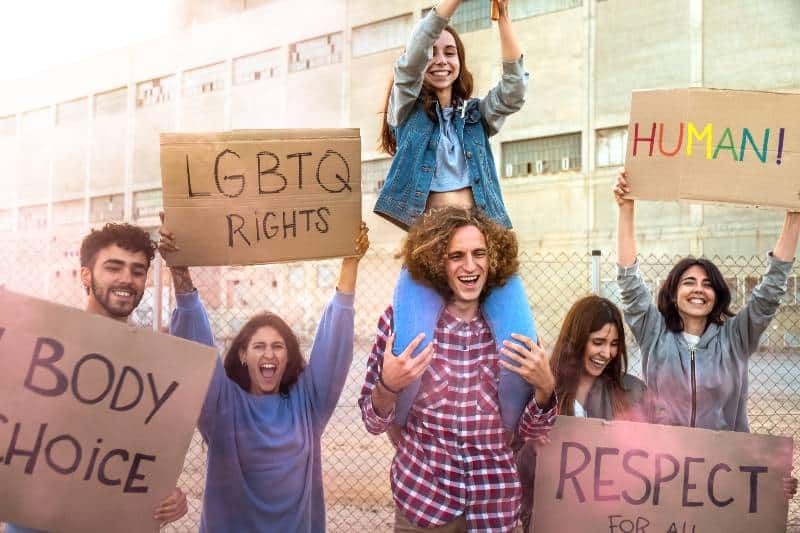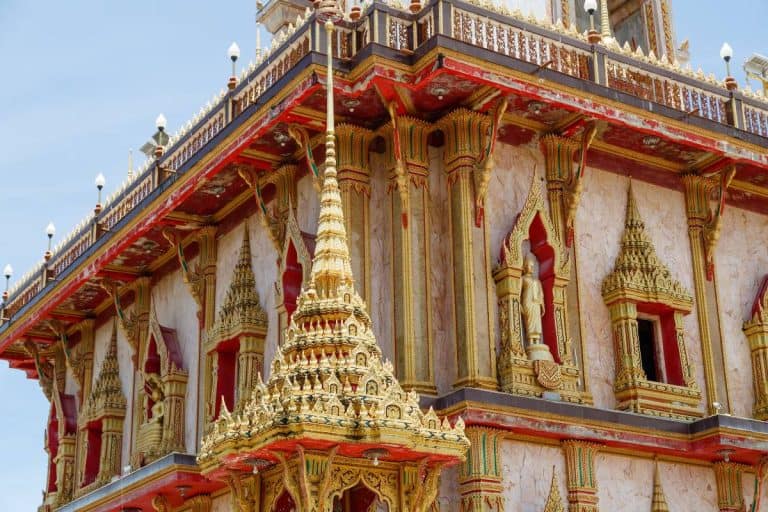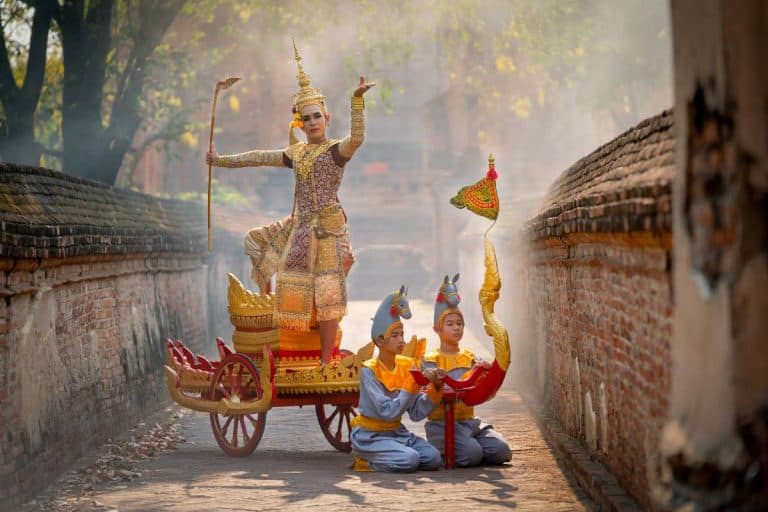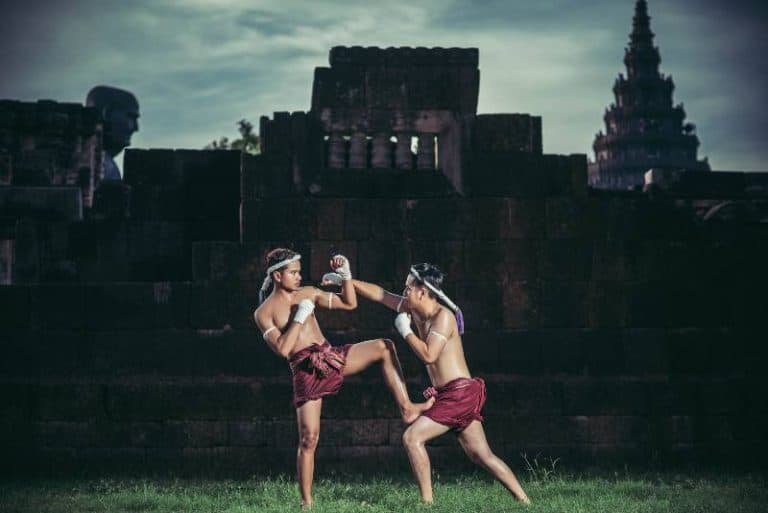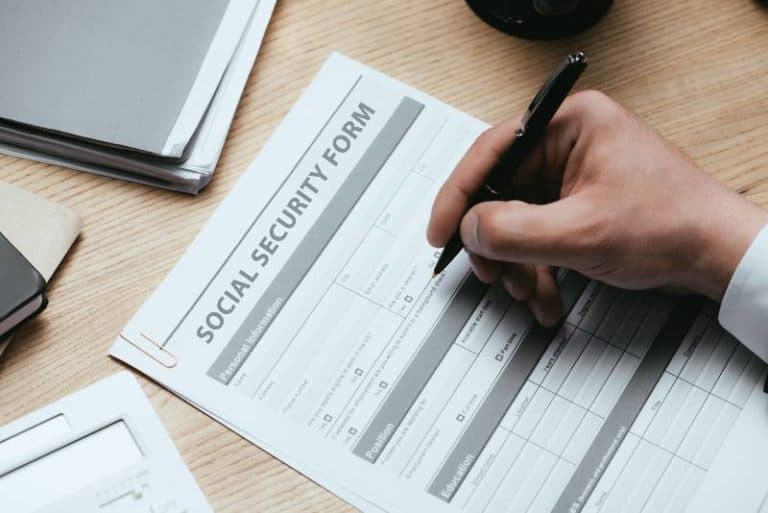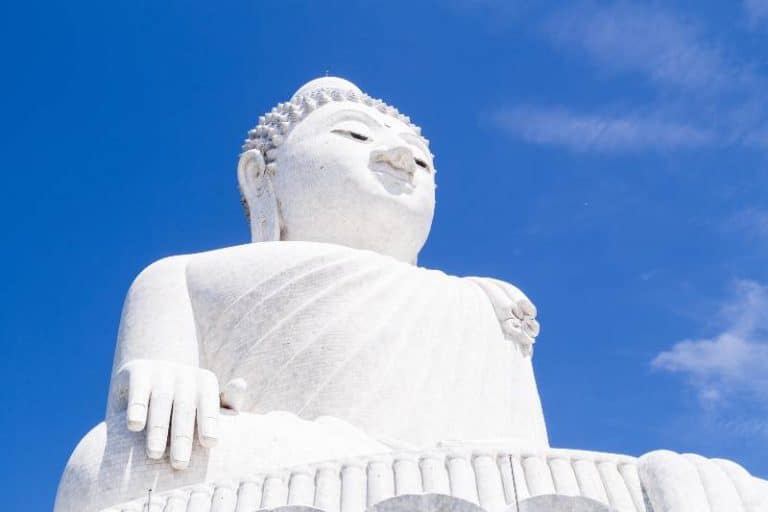A Dive into LGBTQ+ Rights and Culture in Thailand
As one of the most progressive countries in Asia, Thailand is home to a rich and vibrant LGBTQ+ community. Despite certain restrictions and prejudices from more conservative elements of society, acceptance has grown steadily over the past two decades. In recent years, Thailand’s steps toward embracing equality have been monumental – including allowing members of the gay and lesbian people community to adopt children legally for the first time ever. But even with this increased recognition comes unique challenges that many people in other parts of the world don’t face when it comes to their rights and freedom.
This blog post will provide an informative look at the current state of LGBTQ+ rights and culture in Thailand – discussing everything from discrimination laws to marriage rights.
Thailand’s LGBTQ+ culture is vibrant, rooted in historical acceptance like the Kathoey (ladyboys). While society often appears tolerant, especially in urban areas, legal rights lag behind, with issues like same-sex marriage recognition pending. The community, celebrated in media and events, continues to advocate for equal rights amidst societal challenges.
Key Takeaways
- Thailand has a deep-rooted history of LGBTQ+ acceptance, with figures like the Kathoey playing significant roles in its cultural tapestry.
- While Thailand is often seen as a haven for LGBTQ+ rights in Southeast Asia, the community still faces challenges in terms of legal rights and social acceptance.
- With increasing representation in media and a growing acceptance among the younger generation, the future for LGBTQ+ rights in Thailand looks promising.Historical Context
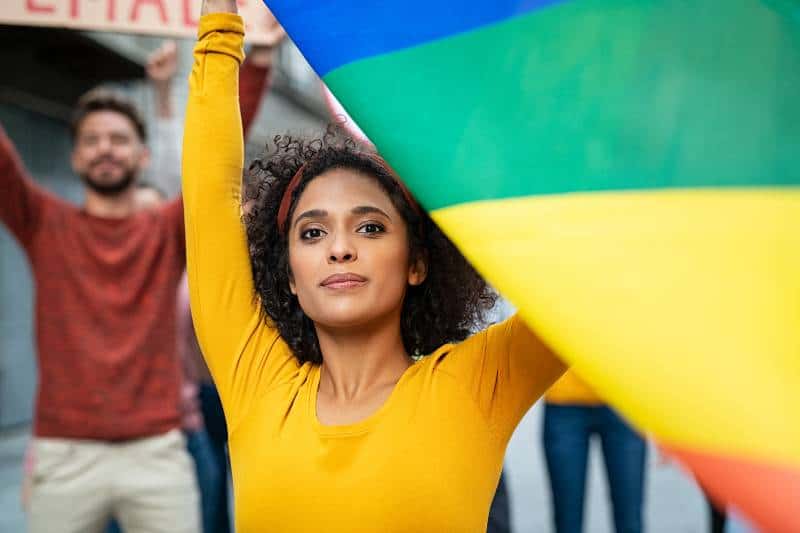
Thailand, known historically as Siam, has a rich and diverse cultural heritage that has been influenced by various neighboring countries and empires over the centuries. This diversity is also reflected in its historical approach to gender and sexuality.
Ancient Thai Beliefs and Spirituality:
Traditional Thai beliefs, rooted in animism, Buddhism, and Hinduism, have often been inclusive of a range of gender expressions and sexual orientations.
- The concept of karma in Buddhism suggests that being LGBTQ+ is the result of actions in past lives. While this has sometimes been used to explain and accept LGBTQ+ identities, it has also been a source of prejudice.
- Many ancient Thai tales and folklore include characters that would today be identified as LGBTQ+. These stories were often accepted as part of the cultural narrative without major stigma.
The Kathoey and Gender Fluidity:
The Kathoey, often referred to as “ladyboys” in the West, have been a recognized part of Thai society for centuries. Historically, they were seen as a third gender and played specific roles in society, sometimes as spiritual leaders or performers.
- While the term “Kathoey” today is mostly associated with transgender women, historically, it encompassed a broader range of gender non-conforming individuals.
Influence of Western Colonization:
As European powers began to influence Southeast Asia, Victorian values and attitudes towards sexuality and gender were introduced. This led to a more conservative approach to LGBTQ+ issues in many parts of the region.
- However, Thailand was never colonized, which allowed it to retain more of its traditional beliefs and practices. Still, the influence of neighboring colonized countries and trade relationships did bring some Western prejudices to the nation.
Evolution of LGBTQ+ Rights Over the Centuries:
Early Legal Framework
For much of its history, Thailand did not have laws that explicitly criminalized LGBTQ+ relationships. However, societal pressures and the desire to modernize in the late 19th and early 20th centuries led to the adoption of some anti-LGBTQ+ sentiments.
20th Century Shifts
The latter half of the 20th century saw a resurgence of LGBTQ+ visibility in Thailand, especially in urban areas. Bangkok, in particular, became known for its vibrant LGBTQ+ scene.
- Despite this visibility, legal rights for the LGBTQ+ community remained limited. Transgender individuals, for instance, faced challenges in changing their legal gender on official documents.
21st Century Progress
The turn of the century brought more organized LGBTQ+ advocacy in Thailand. This has led to significant progress in terms of legal rights and societal acceptance.
- Discussions around same-sex marriage and anti-discrimination laws have gained traction in recent years, reflecting a more progressive approach to LGBTQ+ rights.
Current Legal Landscape
Thailand has been perceived as a haven for LGBTQ+ individuals in Southeast Asia due to its relatively tolerant society. However, the legal framework has not always matched this perception. Here’s a look at the current legal landscape:
Constitutional Rights
Thailand’s constitution does not explicitly mention LGBTQ+ rights. However, it does guarantee equal rights and protection under the law for all citizens, which can be interpreted to include LGBTQ+ individuals.
Same-Sex Relationships
Historically, Thailand did not have laws criminalizing same-sex relationships, which set it apart from many other countries.
- While same-sex marriage is not yet recognized, there have been discussions and drafts for a Civil Partnership Bill, which aims to give same-sex couples similar legal rights as heterosexual couples.
Gender Recognition
Transgender individuals in Thailand face challenges when it comes to legal gender recognition. As of my last update in September 2021, individuals cannot change their legal gender on official documents, which poses challenges in daily life, from employment to travel.
Military Service
Thailand has mandatory military service for men. Transgender women, if they haven’t undergone sex reassignment surgery, are still required to attend the draft but are often exempted from service due to being categorized as having a “mental disorder.”
Anti-Discrimination Laws
There are no comprehensive anti-discrimination laws that protect LGBTQ+ individuals in areas like employment, housing, or services. However, some sectors or companies may have their own internal policies.
Adoption and Parenting
Same-sex couples face challenges in adopting children. While single LGBTQ+ individuals can adopt, a couple in a same-sex relationship is not recognized as a legal entity for adoption purposes.
Recent Advancements and Setbacks
Civil Partnership Bill
One of the most significant advancements has been the discussion around the Civil Partnership Bill. If passed, it would grant same-sex couples many of the same legal rights as married heterosexual couples, though it stops short of full marriage equality.
Increased Visibility and Representation
The past few years have seen an increase in LGBTQ+ representation in media, politics, and public life. This visibility has played a role in pushing for more legal rights and societal acceptance.
Challenges in Education
There have been reports of schools and universities enforcing strict gender norms, such as specific dress codes for male and female students, which can be challenging for transgender or gender-nonconforming students.
Public Opinion
While there’s a general perception of acceptance, especially in urban areas and among younger generations, conservative views still persist, especially in rural areas. These views can sometimes slow the progress of legal advancements.
While Thailand has made strides in recognizing and advocating for LGBTQ+ rights, there’s still a long way to go to ensure full legal equality and protection. The balance between traditional values, modern perspectives, and the evolving legal landscape will continue to shape the future of LGBTQ+ rights in the country.
LGBTQ+ Culture in Thailand
Thailand’s LGBTQ+ culture is vibrant, diverse, and deeply rooted in the nation’s history. It’s a blend of traditional beliefs, modern influences, and the resilience of the community.
The Significance of the Kathoey (Ladyboys) in Thai Culture:
Historical Roots: The Kathoey have been a part of Thai society for centuries. Historically, they were seen as a third gender, distinct from male or female.
- Roles in Society: In ancient times, Kathoey often held special roles, such as spiritual leaders, performers, or caretakers. Their presence was accepted and sometimes revered.
- Modern Perception: Today, Kathoey are most commonly associated with the entertainment and beauty industries. Places like Pattaya and Bangkok have famous cabaret shows featuring Kathoey performers. However, while they are celebrated in the entertainment sector, they can also face discrimination and prejudice in other areas of society.
- Challenges: Despite their visibility, Kathoey face legal and societal challenges, especially concerning legal gender recognition and employment opportunities outside of entertainment.
LGBTQ+ Representation in Media and Entertainment:
Television and Film: Over the past few decades, Thai media has seen a surge in LGBTQ+ representation, especially in television series and movies. “Boys’ Love” (BL) series, which focus on romantic relationships between young men, have become particularly popular not just in Thailand but across Asia.
- Music: Several Thai pop stars and musicians openly identify as LGBTQ+ and have significant fan followings.
- Influencers and Celebrities: Social media platforms like Instagram and YouTube have given rise to LGBTQ+ influencers who share their lives, challenges, and successes, further normalizing LGBTQ+ identities among the younger generation.
Celebrations and Events: Pride Parades, Festivals, etc.:
Bangkok Pride: After a hiatus, Bangkok Pride was revived and has become an annual event celebrating the LGBTQ+ community. It’s a mix of parades, parties, workshops, and cultural events.
- Phuket Pride: Phuket, a popular tourist destination, also hosts its own Pride events, drawing international and local attendees.
- Film Festivals: Events like the Bangkok Gay and Lesbian Film Festival showcase LGBTQ+ films, fostering dialogue and understanding through cinema.
- Songkran LGBTQ+ Parties: Songkran, the Thai New Year, sees massive celebrations across the country. In places like Bangkok, there are specific LGBTQ+ parties and events during the Songkran period, drawing international visitors.
- LGBTQ+ Bars and Clubs: Areas like Silom in Bangkok are known for their LGBTQ+ nightlife, with a plethora of bars, clubs, and entertainment venues catering to the community.
Challenges Faced by the LGBTQ+ Community
While Thailand is often lauded for its relatively open and accepting attitude towards the LGBTQ+ community, especially in comparison to many other countries in the region, it’s essential to recognize that the community still faces significant challenges. These challenges often stem from a disconnect between social acceptance and legal rights, as well as deeply rooted prejudices.
Social Acceptance vs. Legal Rights:
Visibility Doesn’t Equate to Rights: While LGBTQ+ individuals, especially Kathoey, are visible in Thai society, this visibility doesn’t necessarily translate to legal protections or rights. For instance, same-sex couples cannot legally marry, and transgender individuals face hurdles in changing their legal gender.
- Family Pressures: Traditional family values play a significant role in Thai society. LGBTQ+ individuals might feel accepted in broader society but face pressure within their families to conform to traditional gender roles or hide their sexuality.
- Tokenism: The entertainment industry often celebrates LGBTQ+ individuals, but this can sometimes lead to tokenism, where individuals are reduced to stereotypes or used for comedic effect rather than being portrayed as multi-dimensional characters.
Discrimination and Prejudice in Various Sectors:
Employment: While there are LGBTQ+ individuals in various professions, many still face discrimination in the workplace. Certain sectors, especially more traditional or conservative ones, might be less accepting. Transgender individuals, in particular, might find their employment opportunities limited to certain industries, such as entertainment or beauty.
- Education: Schools and universities can enforce strict gender norms. Dress codes, for instance, can be particularly challenging for transgender or gender-nonconforming students. There have also been instances where LGBTQ+ students face bullying or exclusion.
- Healthcare: Accessing healthcare can be a challenge, especially for transgender individuals. There’s a lack of understanding or sensitivity among some medical professionals about LGBTQ+ specific health needs. Additionally, while Thailand is a hub for gender-affirming surgeries, accessing comprehensive transgender healthcare can be expensive and out of reach for many.
- Military Service: As mentioned earlier, Thailand’s mandatory military service for men can be a challenging experience for transgender women, who are often exempted from service due to being categorized as having a “mental disorder.”
- Religion: While Thai Buddhism is generally more accepting than many other religious traditions, there are still conservative elements within the religious community that view LGBTQ+ identities as the result of negative karma from past lives.
Societal Attitudes
Rural vs. Urban Divide: While cities like Bangkok are known for their vibrant LGBTQ+ scenes, rural areas can be more conservative. LGBTQ+ individuals in these areas might face more significant challenges in terms of acceptance and understanding.
- Generational Differences: Younger generations, influenced by global trends and media, tend to be more accepting. However, older generations might hold more traditional views, leading to intergenerational tensions within families.
Personal Stories
(Note: The following stories are fictionalized accounts based on general experiences of LGBTQ+ individuals in Thailand. They aim to provide a glimpse into the diverse experiences of the community.)
1. Areeya, a Transgender Woman from Bangkok:
“Growing up, I always knew I was different. I felt trapped in a body that wasn’t mine. My family, traditional in their beliefs, struggled to understand. They wanted their ‘son’ to be ‘normal’. But Bangkok, with its shimmering lights, offered me a sanctuary. I started my transition in my late teens. The city had clinics, support groups, and a community that understood. Today, I’m a performer at one of the city’s famous cabaret shows. The stage is where I feel most alive, most myself. But off-stage, challenges persist. From changing my gender on official documents to finding love, the journey isn’t easy. But it’s mine, and I wear it with pride.”
2. Somchai, a Gay Man from a Rural Village:
“I grew up in a small village in the North. Everyone knew everyone. As a child, I’d watch Thai dramas with my mother, and I’d secretly relate more to the romantic tales between men. When I came out to my parents, there was silence. Not rejection, but a quiet understanding. They worried about gossip, about what neighbors would say. Moving to Chiang Mai for university was liberating. I attended my first Pride parade there. But every time I visit my village, I’m reminded of the two worlds I straddle. One of acceptance and freedom, and the other of silent understanding and hidden truths.”
3. Pim, a Lesbian Businesswoman:
“In the corporate world of Bangkok, suits and heels are the norms. But behind the formal attire, I’ve always been open about who I am. I’m fortunate to work in a company that values diversity. My colleagues know about my wife, and we’re often invited to company events together. But when we decided to start a family, challenges arose. Adoption processes were complicated, and societal expectations weighed heavily. People would often ask, ‘Who’s the father?’ or ‘Don’t you want a normal family?’. Every step of our journey, from adoption to raising our daughter, has been a mix of joy and societal hurdles.”
4. Nattapong, a Non-Binary University Student:
“University campuses in Thailand are often places of strict gender norms, especially during initiation ceremonies. As someone who identifies as non-binary, these norms felt suffocating. I’d often get quizzical looks or outright rejections. ‘You’re just confused,’ some would say. But with the support of friends and some progressive faculty members, I started an LGBTQ+ support group on campus. It became a space for people like me, a space where we could share, learn, and advocate. The journey has been tough, but every time a freshman comes to our group, seeking understanding, I know it’s worth it.”
These stories offer a glimpse into the diverse experiences of Thailand’s LGBTQ+ community. While the country is often seen as a beacon of acceptance in Southeast Asia, it’s essential to recognize the individual challenges, triumphs, and journeys that make up the broader narrative.
Comparative Analysis
Thailand’s position in Southeast Asia offers a unique perspective when comparing its LGBTQ+ rights and culture to its neighbors. Here’s a brief comparative analysis:
Thailand:
Rights: No laws criminalizing homosexuality. Discussions around civil partnerships for same-sex couples are ongoing, but no legal recognition yet. Transgender individuals cannot change their legal gender.
- Culture: High visibility, especially with the Kathoey community. Bangkok is a hub for LGBTQ+ nightlife and events. “Boys’ Love” series and LGBTQ+ representation in media are popular.
Myanmar (Burma):
Rights: Homosexuality is illegal under Section 377, a colonial-era law, and can lead to imprisonment.
- Culture: LGBTQ+ individuals face significant stigma and discrimination. However, events like &PROUD Yangon LGBT Film Festival are pushing boundaries.
Laos:
Rights: Homosexuality is legal, but there’s no legal recognition of same-sex relationships, and there are no specific protections for LGBTQ+ individuals.
- Culture: LGBTQ+ issues remain relatively taboo, but there’s a growing acceptance, especially in urban areas like Vientiane.
Cambodia:
Rights: Homosexuality is legal, but there’s no legal recognition for same-sex couples. No laws specifically protect against discrimination based on sexual orientation or gender identity.
- Culture: While there’s a degree of social acceptance, especially with the presence of “third gender” individuals, LGBTQ+ rights advocacy remains in its infancy.
Vietnam:
Rights: Homosexuality is legal. Vietnam abolished its ban on same-sex marriage in 2015, though it still doesn’t recognize or provide legal protections for same-sex couples.
- Culture: Rapidly evolving. Urban centers like Ho Chi Minh City and Hanoi have burgeoning LGBTQ+ scenes. The younger generation is more accepting, and there’s increasing representation in media.
Malaysia
Rights: Homosexuality is illegal and can lead to imprisonment, fines, or corporal punishment. Laws are occasionally enforced, leading to high-profile cases.
- Culture: Conservative societal views, influenced by both Islamic and traditional beliefs. However, there’s a discreet LGBTQ+ community and underground scene.
Singapore
Rights: Male homosexuality is illegal under Section 377A, though it’s rarely enforced. No legal protections or recognition for LGBTQ+ individuals.
- Culture: A mix of modernity and conservatism. Events like Pink Dot advocate for LGBTQ+ rights, but there’s resistance from conservative groups.
In summary, Thailand stands out in the region for its relative acceptance and visibility of the LGBTQ+ community, especially in cultural terms. However, when it comes to legal rights, Thailand, like many of its neighbors, still has progress to make. The region as a whole presents a diverse picture, with each country’s approach to LGBTQ+ rights and culture shaped by its unique history, religion, and societal values.
Future Outlook
Thailand’s trajectory regarding LGBTQ+ rights and acceptance has been largely positive, but the journey towards full equality and acceptance is ongoing. Here’s a look at potential predictions and hopes for the future:
Legal Recognition of Same-Sex Relationships
Prediction: Given the ongoing discussions around the Civil Partnership Bill and the general trend towards acceptance, it’s likely that Thailand will introduce some form of legal recognition for same-sex couples in the near future.
- Hope: Advocates hope for full gay marriage equality rather than just same sex civil partnerships, ensuring that same-sex couples have the same rights as heterosexual couples.
Transgender Rights
Prediction: As Thailand continues to be a hub for gender-affirming surgeries and with increasing global awareness about transgender rights, there might be a push towards easier legal gender recognition.
- Hope: The hope is for a comprehensive approach to transgender rights, including non-discriminatory healthcare, employment opportunities, and legal protections.
Anti-Discrimination Laws
Prediction: As the LGBT community becomes more vocal and organized, there will likely be a push for comprehensive anti-discrimination laws that protect individuals based on sexual orientation and gender identity.
- Hope: Enacting such laws would provide protection in various sectors, from employment to housing, ensuring that LGBTQ+ individuals can live without fear of discrimination.
Education and Awareness
Prediction: With the increasing representation of LGBTQ+ individuals in media and the influence of global LGBTQ+ movements, Thai schools and universities might incorporate more inclusive education.
- Hope: Comprehensive sex and relationship education that includes LGBTQ+ topics can foster understanding and acceptance from a young age.
Rural and Urban Divide
Prediction: While urban areas like Bangkok will continue to be at the forefront of LGBTQ+ rights and culture, rural areas might see a slower pace of change.
- Hope: Advocates hope for nationwide acceptance, with initiatives and programs targeting rural areas to foster understanding and reduce the urban-rural divide.
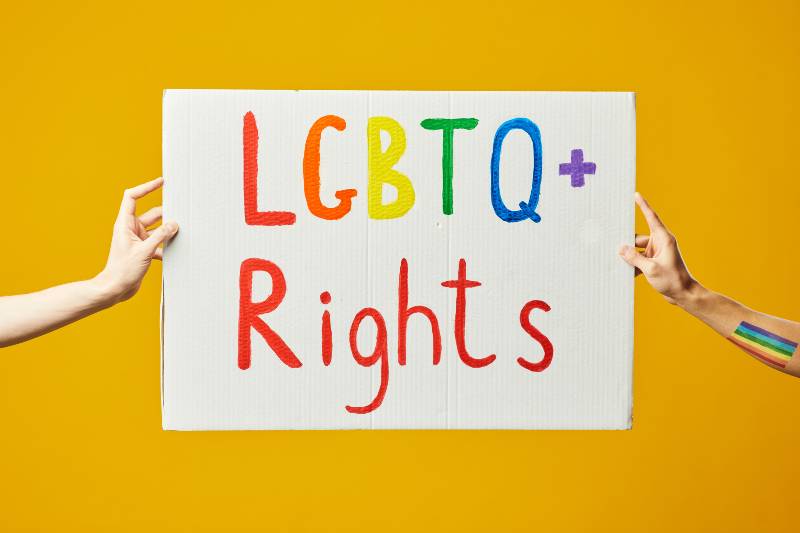
LGBTQ+ Rights and Culture in Thailand FAQs
What is the historical context of LGBTQ+ rights in Thailand?
Thailand has a rich history of gender- and sexual-diversity, with some evidence dating back to pre-colonial times. It’s important to distinguish between the two terms – while gender diversity is recognized in various aspects of Thai culture, attitudes enable same sex couples have been more ambivalent.
How does Thailand’s legal landscape address LGBTQ+ rights?
In terms of legal recognition, Thailand has made some progress in recent years. The country legalized same-sex unions in 2015 and decriminalized homosexuality in 2018. Additionally, laws have been passed to protect individuals from workplace discrimination on the basis of sexual orientation and gender identity.
Who are the Kathoey and what is their significance in Thai culture?
Kathoey, also known as ‘ladyboys’, are transgender women who play an important role in Thai culture. While they’re often associated with entertainment or beauty industries, Kathoey represent a broad range of occupations and classes. In some cases, Kathoey have achieved prominent positions in politics or business.
Are there any LGBTQ+ festivals or events in Thailand?
Yes, there are a number of LGBTQ+ festivals and events that take place annually in Thailand. The largest and most famous is the Bangkok Pride parade, which takes place every spring. This event celebrates the diversity of genders, sexualities, and identities while advocating for greater acceptance and understanding within Thai society.
How does the general public in Thailand perceive the LGBTQ+ community?
Attitudes towards the LGBTQ+ community vary in Thailand. In general, acceptance is highest among younger generations and in major cities like Bangkok. However, there’s still a lot of work to be done in terms of changing attitudes and increasing legal protections for individuals across all sectors.
Conclusion
All in all, there is much to learn from Thailand’s history of LGBTQ+ acceptance and it has a lot to offer the world. Though there are still progress that needs to be made, the trajectory of acceptance is positive and provides hope for the future. Oftentimes, we as an international community can become complacent in our own places of privilege – but this reinforces the importance of looking at countries like Thailand that have a proud history of acceptance and celebrating progress in areas where significant strides can be taken. Remember, global change starts with local action.
If you want to know more about living and embracing the LGBTQ+ community in Thailand, subscribe to our newsletter for the best information or reach out to us with questions or observations at any time – we’d love to hear from you.∂gay
